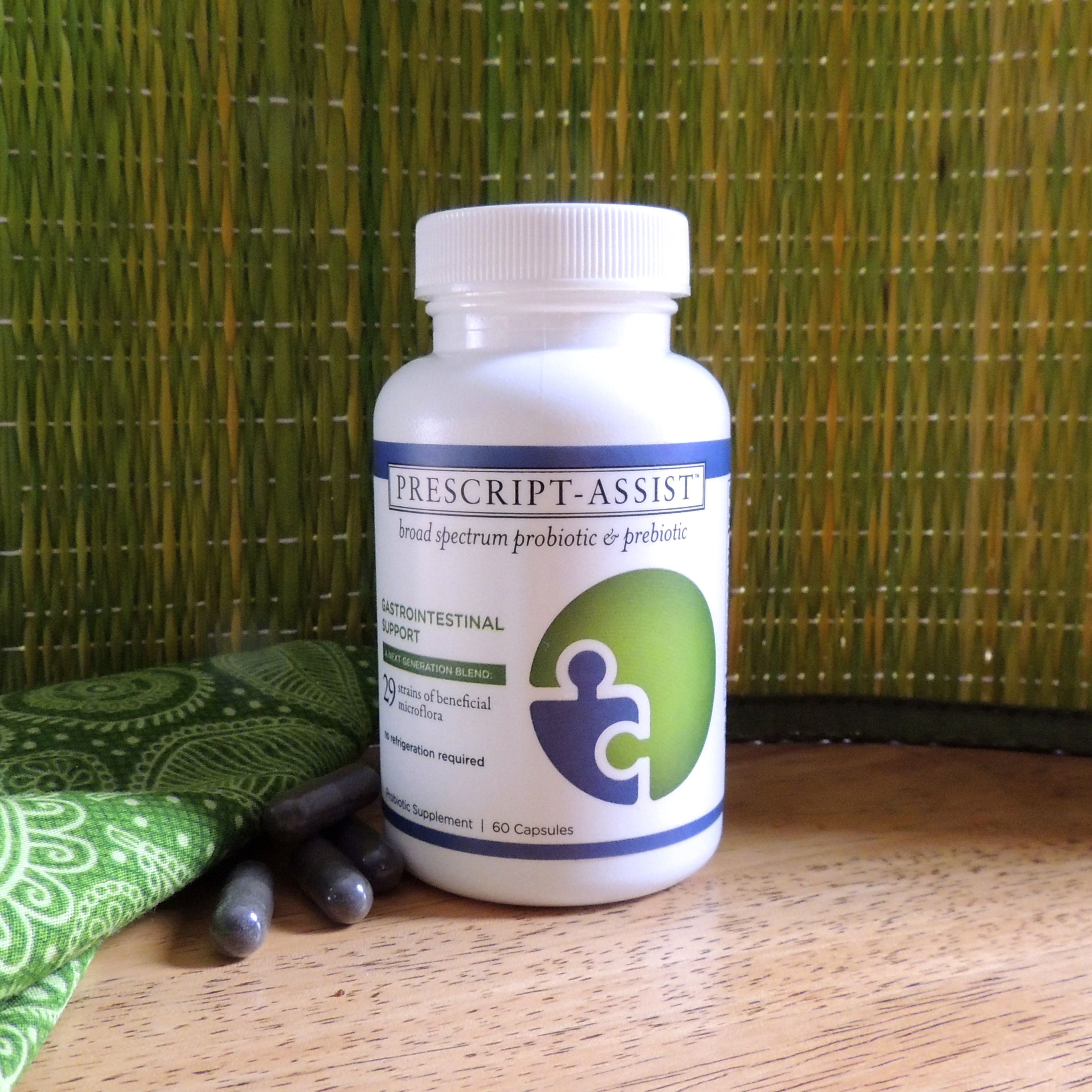Unless you’ve been hiding out somewhere recently, I would venture to say that you’ve “heard the word” about probiotics. The importance of maintaining healthy gut flora is being recognized in a big way in the health community and almost everywhere you turn- from sleek medical offices to your average convenience store- these friendly bacteria are being praised for their ability to help control body weight, increase energy, and prevent disease. Given the sheer volume of information out there at this point, you might even consider yourself a “pro-at-probiotics” of sorts. But have you heard anything about prebiotics? Essential to the proper growth and resilience of probiotic bacteria, prebiotics are a critical piece of the gut health conversation that simply should not be ignored. We are going to cover the benefits of probiotics and prebiotics for gut health and what this dynamic duo does.

Probiotics and Prebiotics
Probiotics are the natural, beneficial bacteria that comprise the indigenous flora of the digestive tract. Microbiologists have identified 300-400 different strains of “good” bacteria lining the gut, which as a group work to prevent invasion by pathogens, stimulate the immune system, sustain the integrity of the gut, and provide a means of nourishment by synthesizing absorption of various amino acids, vitamins, and minerals that are the building blocks of our bodies. The literal interpretation of the word probiotic is “for life,” which serves as a beautiful translation in a world that is all too commonly about sterilizing, containing, and squandering flora indiscriminately through antibiotics, heating, refining, and processing foods, adding artificial “enhancements” to water and toxic chemical exposure. Studies have implied that beneficial bacteria can be increased and strengthened through the intake of fermented foods such as homemade yogurt, kefir, and sauerkraut, as well as by incorporating a high-quality probiotic supplement into your daily regimen.
Prebiotics are indigestible dietary fibers that probiotic bacteria use as a source of fuel to flourish, grow and proliferate. Made up of non-living organic matter, prebiotics are basically the main food source that nourishes the beneficial bacteria lining your gut. An integral piece of gut health, the discovery of prebiotics and supporting theories is relatively recent, with the term first being defined in 1995. Since that time, numerous studies have shown that maintaining adequate prebiotic intake has many potential benefits that include:
- Decreasing pathogenic gut bacteria
- Building and strengthening healthy gut flora
- Improving bowel movement regularity
- Maximizing dietary mineral absorption (especially calcium and magnesium)
- Increasing immune factors
- Enhancing control of appetite and weight
Where Do Prebiotics Come From? Insoluble vs. Soluble Fiber
Unlike probiotics, which are living organisms, prebiotics are food ingredients. Prebiotic compounds can be found in certain food items that are rich in dietary fiber. However, not all fibrous foods contain these desirable substances. With all of the convoluted information about fiber out there today, let’s take a moment to clarify the two major different types of fiber as well as the particular mechanisms through which they affect gut health.
Usually, when we think about fiber, images of dense bran muffins and spoonfuls of powdery fiber supplements swirled into a glass of orange juice, come to mind. This trendy type of fiber found in whole grains, vegetables, coconut flour, and supplements galore, is widely acknowledged for its constipation-preventing characteristics. Because such insoluble fiber does not dissolve in water, it passes through the gastrointestinal tract relatively intact. Thus, it can be helpful in promoting the regularity of bowel movements by retaining water and encouraging the passage of food and waste through the GI system.By promptly absorbing and promoting the timely expulsion of irritating agents, carcinogens, and even parasites, insoluble fiber is essential for the systematic cleansing and detoxification of the body, as well as the modulation of blood sugar levels. Yet while insoluble fiber is important, it is not responsible for prebiotic activity.
Soluble fibers are a lesser-discussed food group whose unique composition allows them to be broken down and fermented in the colon. Oftentimes this fermentation process results in the creation of a gel-like substance that lubricates the gastrointestinal tract and slows digestion to allow for maximum mineral absorption. Soluble fibers also contain special prebiotic compounds- the ingredients that the probiotic bacteria in the colon use as “food” or fuel. These specific substances are released when soluble fibers are broken down and include inulin as well as different types of oligosaccharides, such as fructooligosaccharides and galactooligosaccharides. Inulin is a naturally occurring compound found in over 36,000 different types of plants and galactooligosaccharides are present in human breast milk- evidence that prebiotics are an intricate part of nature's design that have long been accessible to humans in order to promote optimal health. Yet due to destructive conventional agricultural processes and a changed natural environment, viable sources of prebiotics are somewhat limited in the modern diet. Listed below you will find a list of the prebiotic-rich foods in descending order of inulin/oligosaccharide content:
- Chicory Root
- Jerusalem Artichoke
- Dandelion Greens
- Garlic
- Leeks
- Onions
- Asparagus
- Wheat Bran
- Banana
Studies have shown that Americans have a very low average prebiotic intake, with 70% of daily values coming from questionable wheat-based sources, and 25% from onions. Keep in mind that cooking foods appear to reduce existing prebiotic content by 25-75%, so consuming the above foods in a raw state is the superior way to enjoy them as far as prebiotics go.
If you are unsure about constantly smelling of raw onion and garlic however, or simply don’t get enough of these foods in your diet, another beneficial way to ensure you are obtaining a balanced amount of prebiotics is to take a combination pre/probiotic supplement- more fancily known as a synbiotic. At Radiant Life, we have recently been excited to use Prescript Assist: a soil-based, broad-spectrum probiotic that also contains a proprietary prebiotic blend of the soluble mineraloid Leonardite for the robust maintenance and enhancement of gut microflora. A clinically researched, 3rd generation formulation, many practitioners, and individuals have reported Prescript Assist to be particularly helpful in fortifying the microflora of the gut. With 29 different strains of beneficial bacteria coupled with a nourishing prebiotic base, this innovative synbiotic is also designed to be highly stable and viability is conveniently maintained without a need for refrigeration.
Resources
Presence of Inulin and Oligofructose in the Diets of Americans, The Journal of Nutrition
What are Prebiotics? by Mark Sisson
Gut and Psychology Syndrome, by Dr. Natasha Campbell-McBride
Probiotic-Prebiotic Treatment for IBS, Clinical Therapeutics
Probiotic-Prebiotic treatment for Bacterial-Diarrhea, Clinical Therapeutics

